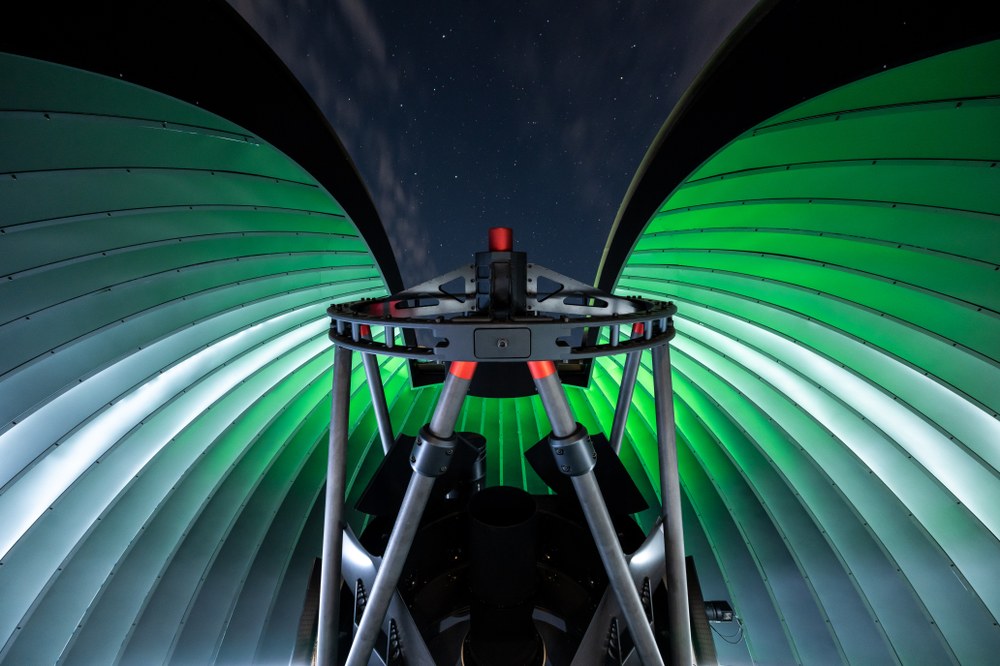Department of Active Optical Systems

The Active Optical Systems department deals with laser-optical tracking of objects in airspace and in Earth orbit and develops and operates several stations and experimental systems for research purposes. A major focus of the research work is the detection and analysis of orbital objects and – building on this – the use of high-power laser technology for orbit lowering and collision avoidance of space debris. In order to achieve the associated goals, the department AOS operates both deployable laser-optical ground stations and a large observatory as part of the "Orbital Photonics" scientific working group in order to be able to locate space debris down to dimensions in the decimetre range.
In addition to the operation of the ground stations, the effect of laser radiation on space debris materials and the corresponding momentum transfer is evaluated in simulations in order to use these laser-based processes to increase safety in orbit in the future. An extremely compact and therefore transportable ground station for locating co-operative satellites (i.e. equipped with retroreflectors) is also available as a Satellite Laser Ranging (SLR) system. The aim of tracking objects in airspace is to detect, locate and defend against small unmanned aircraft (UAS, Unmanned Aircraft System). A mobile, trailer-based research platform is available for this purpose. The AOS department also has expertise in the qualification of optical components that are used under space conditions, such as corner cube reflectors (CCRs). In accordance with ISO standards, dielectric laser optics are subjected to standardised laser stress tests in a clean room and investigations into laser-induced contamination are carried out.
